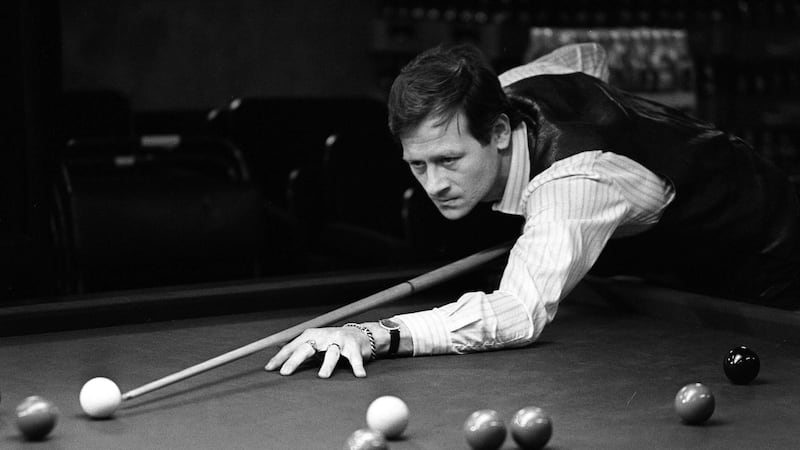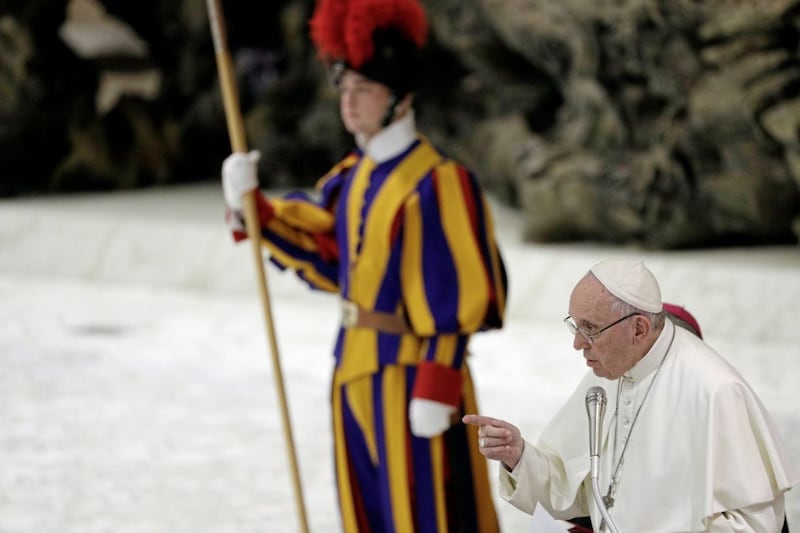JOHNNY Mullan wants to understand why bullying happens, Margaret Phillips is troubled by the threat to the Earth's environment, and wonders what to do about that. Eddy Li is fascinated by crime of all kinds and wants to be a detective. Mary McNevin wonders why there are so many different problems, and wants to write songs that will help.
When these four meet in their first year at Iona College they come to the conclusion that all of the major problems that interest them have a common cause. But when they argue their case in a school debate they find themselves opposed by a senior teacher, and are threatened with censorship or expulsion.
At first glance The Chain That Binds the Earth is a young adult fictional story about a group of year eight pupils in a Derry school dealing with bullying, friendships and relationships. But the thought behind the novel and the message within involve a broader commentary on the state of the Catholic church and on the impact of consumerism upon the world.
The book's author, retired Coleraine history teacher Sean O'Conaill, took it upon himself to write the book to test the power of "Girardian mimetic theory" to explain to young people a wide range of modern ills – from the global threat to the environment to violence.
"Put simply, French social scientist René Girard's theory is based on the fact that our desires are borrowed from other people and that all conflict originates from the desire for what others have," says O'Conaill.
Since retiring almost 10 years ago the 72-year-old has "had time to do the reading" he had been putting off, he says. Such reading led to developing an interest in exploring what motivates us to behave as we do and to the conclusion that "our desires do not begin with ourselves, although we insist on believing they do". Put even more simply, we copy each other.
"The launch of the iPhone 7 means your iPhone 5 or 6 suddenly becomes useless," he says. "The modern world presents us with a temptation to fetishise material goods – and technology in particular."
As a former teacher, O'Conaill recognised the potential in the idea that we often unconsciously absorb the desires of others as a clear way to explain historical events – such as "Julius Caesar, the burning of Joan of Arc, the world wars of the 20th century, the Cold War – and the Troubles of Northern Ireland".
"A lot of academia criticise Girard's concept as being too simple, but I believe it's right and it's starting to feed into our education system," adds O'Conaill. And he says there is really nothing new in the concept.
"Constantine [the first Roman emperor to adopt Christianity] noticed and criticised 'emulation' – rivalrous imitation – and then all noticing of social imitation stopped. Now almost no-one talks about the most obvious feature of human culture: that we tend to model our desires, right down to choices of holiday destination, on the choices of others."
As well as being enjoyed by young readers as a story about children overcoming opposition in school, O'Conaill believes his book offers plenty for adults as well, particularly those involved in education and concerned about the tradition of what we pass onto our children.
O'Conaill believes that the launch in June of Pope Francis's Laudato Si, which critiques consumerism and challenges people to take global action to stopping environmental damage, provides an opportunity for discussion surrounding this idea of unconscious copying.
However, he doesn't believe Pope Francis goes far enough, failing to directly address or even use the word materialism and instead using the term 'technocratic paradigm' to describe unnecessary accumulation.
The Chain That Binds the Earth deals with this concept at a young person's level, calling it copy-wanting. In the novel the head of the RE department at Iona College, Dr McGinnis, demonstrates the antiquated attitude of the Catholic Church and education system, saying to the children at the centre of the story: "As good Catholic children you should simply accept what you are taught."
On another occasion 11-year-old Johnny describes Jesus as a '"goody, goody figure who wants us to do nothing". With falling attendance at Sunday observance, O'Conaill criticises the Catholic Church for dealing with the distant past or eternity, rather than addressing contemporary issues such as bullying and the impact of computer games and the internet.
"Bullying arises out of status anxiety, with young people questioning how valuable they are," he says. "They often believe that if they are not on top they are on the bottom and thus use any means to strive and stay on top.
"I think we patronise young people to a terrible extent. The fact is their lives are surrounded by great danger now. They can go to a party and be given a substance that can kill them. Their potential for safeguarding themselves and one another has got to be developed and realised."
So what can teachers and parents do to help our children cope with the demands of such a world?
"It's seems that the whole world is advertising to children now. Parents need to be aware of this dissatisfaction we have with ourselves as we are," says O'Conaill, who says we would do well to remind our children of the sentiment of The Rolling Stones' song, You Can't Always Get What You Want.
:: The Chain That Binds The Earth is available on amazon.co.uk in paperback and Kindle.






